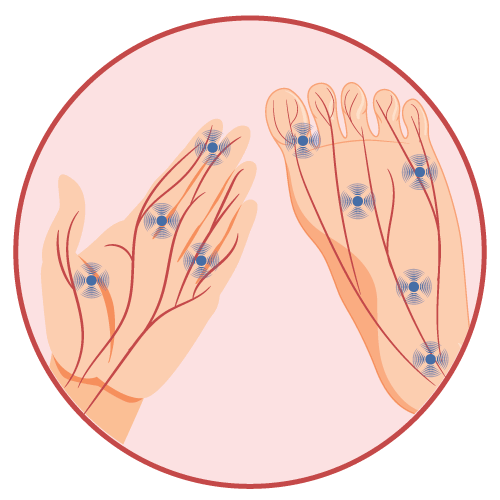| Name | Paresthesia |

Paresthesia
Paresthesia is a term used to describe a burning, tingling, or numb sensation in the skin that is often accompanied by a feeling of pins and needles. This condition can occur anywhere on the body and is most commonly felt in the hands, feet, arms, or legs.
There are several causes of paresthesia, including nerve damage or injury, nerve compression or entrapment, nerve inflammation, and nerve diseases. Other factors that can contribute to paresthesia include exposure to certain toxins, medications, and medical conditions such as diabetes, multiple sclerosis, and vitamin deficiencies.
Diagnosis of paresthesia typically involves a physical exam, medical history, and nerve function tests such as an electromyogram (EMG) or nerve conduction study (NCS). Treatment depends on the underlying cause of the paresthesia and may involve medications, physical therapy, or in some cases, surgery.
It is important to seek medical attention if you experience symptoms of paresthesia, as early diagnosis and treatment can help prevent potential complications and ensure the best outcome.
Note: This is a general description. Please take professional health advice.
 Bangla
Bangla English
English